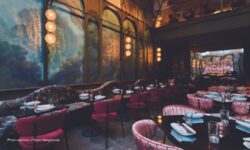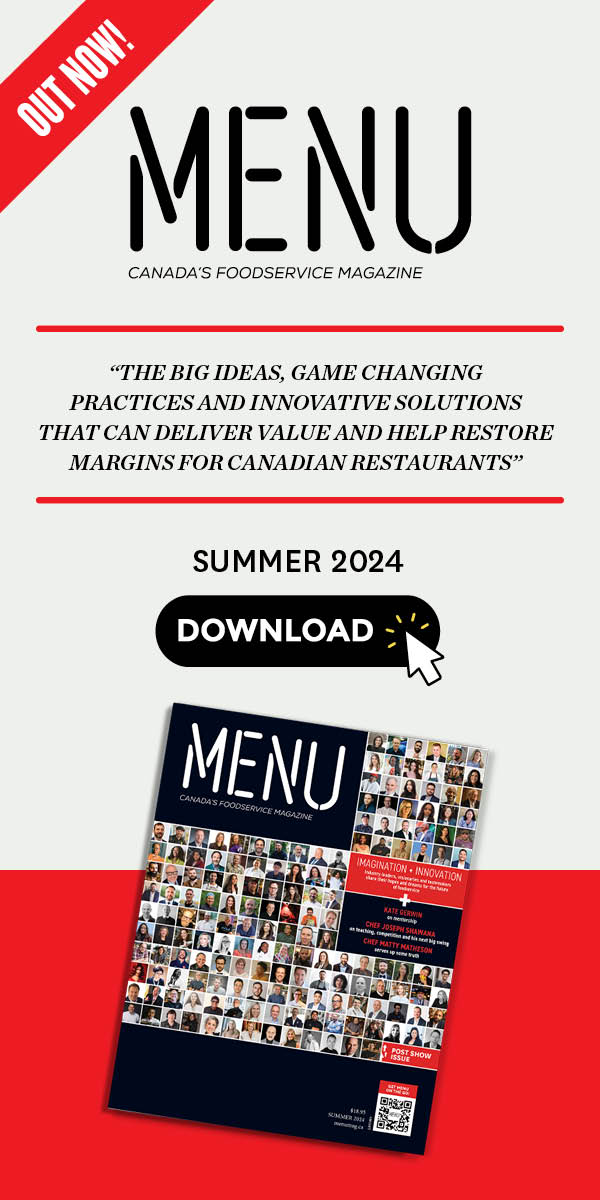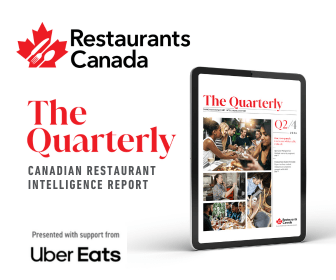Lean on Me: When a restaurant is your client…
In 2005, a sixteen-year-old boy from Kuwait came to Canada. He came alone in the last week of August. No friends or family met him at the airport.
Kuljeev Singh was just barely a teenager but he had already lived through two Gulf wars. The first when he was three, when he and his family were among the 170,000 people evacuated from Kuwait by the Indian Army using Air India aircraft—the largest evacuation by civilian airlines in history. “The entire region was very unstable,” Singh says over the phone. “I wanted to build my future in a place that was stable.”
Lucky for him he was really good at math.
He studied hard at the University of Waterloo on an international student visa and he fell hard. Not for a girl, or a particularly stunning mathematical equation, but for a country: “I fell in love with Canada and the people here. I’m very blessed with what this country has given me.”
He graduated and started his working life in private equity and venture capital. He could have stayed on that path, but he had this thing about food. “I was always passionate about restaurants.” So he got out of finance and bought not one but two Kanga Foods, which quickly grew into four. Kuljeev soon discovered an overlooked pain point, one of so many inherent in foodservice entrepreneurship. “Repair and maintenance is an overlooked part of operations. Not many operators are equipped to do their own repairs.”
He certainly wasn’t.
A math protégé from the world of finance, he found himself scrambling when equipment broke down. “We struggled finding contractors, we lost thousands in inventory.” He had a vision to empower restaurateurs to rise above busted toilets and exploding grease traps and to do it without going broke or having to learn HVAC in the process. So he created ResQ; a platform that helps owners manage all of their repair and maintenance operations through a streamlined app connecting them to vetted contractors à la minute.
Within two years he grew ResQ to over a thousand customers, including big-name clients like Tim Hortons, Pizza Hut, Cactus Club Cafe and Earls.
And then the goddamn pandemic hit.
Ten years ago, Dave Arnold was working as a display artist at the Urban Outfitters flagship in downtown Montreal, “painting stuff on windows,” when he realized that most companies don’t have a budget for a visual consultant.
He had noticed that there wasn’t much in the way of old-fashioned hand lettering on business signage, so he put together a flyer offering his services, and dropped it off to shops and restaurants in his neighbourhood. “I wasn’t really reinventing the wheel. In New York it never died, but here in Montreal the craft had almost disappeared.”
He called himself Mr. Sign and business soon took off. “Montreal is so tight knit, word spread quickly.”
Especially among restaurants. He created custom work for Nora Gray, Le Vin Papillon, Mandy’s, Lawrence and many others. His client list could ostensibly double as a dining guide to The City of A Hundred Steeples—as Mark Twain nicknamed it in the 1800’s.
In mid-March business completely dried up. “Even contracts that were already cooking, people were calling to ask me to stop. They didn’t know if they’d have a business in two months.” Mr. Sign wasn’t sure if he would either. “Everyone went into survival mode. Paper over windows. It was terrifying.”
In November of 2013, a crowd of people lined up at an old United church in downtown Winnipeg. When the doors opened, Guns N’ Roses blasted out, the stained glass windows lighting up from within as the crowd entered. The event was called “November Rain” and it was the first soirée created by Leane Funk’s Winnipeg Supper Club.
A former marketing exec, Funk took the success of that first night and made pop-ups and secret dinners her new business. For five years she ran a Sunday Night Dinner series that showcased the cooking talents of Winnipeg’s most overlooked culinary demographic: the sous chefs.
Winnipeg doesn’t have the robust restaurant scene of New York or Toronto, and as such there isn’t a lot of room for growth for “the second in command. A lot of them will sit at the sous chef level for years, and they get frustrated. I was noticing a pretty high burnout rate among younger cooks and I decided to give them a platform.”
Since launching her business she has sold out every single event. Her last dinner before the pandemic was held on March 12. Through her business Funk not only provides unique dining experiences for the people of Winnipeg, but she’s become a member of the city’s food community. “We’re in self-preservation mode right now. My primary focus is to create smaller events that keep local caterers and chefs generating some income.”
By the time summer rolled around in Montreal, calls had started coming into Mr. Sign again. But these clients weren’t looking for hand-painted signs so much anymore.
“A lot of the new imagery I’m creating now is to represent what change has occurred at the business. They’re using that for t-shirts, tote bags, on windows, profile pics. It’s become the temporary branding across all platforms—a new look for whatever the company is now.”
Arnold streamlined his process. “In the old days I would have given three different logos to choose from; I’m knocking out options and revisions to give a break on pricing. I’m going lean, trying to trim as much of the fat as humanly possible.”
That restaurants are still putting their limited resources into his services says a lot about the importance of what Mr. Sign offers. “Your sign is the first impression. I think that’s why businesses are still allocating funds to commercial artwork—to get people in the door.”
Even with his efforts, he knows that 2020 will not be a profitable year. “Jesus Christ, if I can make enough to keep the lights on that’s become the definition of success. At least for me.”
But it’s about more than profit at Mr. Sign, his clients have become like family. “Everyone has that same look of concern. We don’t want to see anyone drop off, we’re all working hard to boost each other up.”
Last month Funk hosted Southern BBQ & Blues, “a mountain of meat and loads of sides,” both in Winnipeg and in her hometown of Winkler on the North Dakota border. They served two pounds of food per person; three kinds of meat sided by mac and cheese, beans, slaw and cornbread all laid out on beer flats.
“Even though people were sitting far apart it felt like a normal evening. People were so grateful to have a night out.”
Recent Winnipeg Supper Club happenings: “Art & Snacks,” an event Funk holds every year as a fundraiser. This year the proceeds went to the chefs participating. “So many of us have experienced a loss of income, if this can replenish or help someone catch up—every little bit helps.”
Her annual seafood boil also happened in September.
After a morning of dealing with liquor license applications for events, Funk is waiting in her car for a tow truck, her tire having just blown out on the highway. “I’m very aware that my role in Winnipeg Supper Club is the easiest one, it’s more nerve-wracking for the chefs. There’s a fear of the unknown day to day. The fact that things are selling at all this year, under these circumstances, makes me feel really positive about 2021. If we can get through these next six months.…”
It is autumn now, and I meet Singh at ResQ headquarters on the Esplanade in Toronto; a few blocks of huge patios that would normally be packed with summer tourists, now abandoned and eerily quiet. The office is empty save for one employee and his young son. Most of the team work remotely, coming in for socially-distanced team meetings and brainstorming sessions.
“You can’t brainstorm on Zoom,” says Singh.
For ResQ to stay open, for this office to keep the lights on and the Wi-Fi running, he and his team have had to adapt fast. “We lowered our prices by 10-20% and we’ve changed our own revenue model to provide more flexibility. Where restaurants were paying by the service, now it’s a subscription, so all services are covered. And we’ve built in features so clients can manage some tasks internally, like cleaning in-house rather than hiring outside.”
Survival mode has helped ResQ, Mr. Sign and Winnipeg Supper Club to refine their businesses and narrow in on what is most important to them. Each understands that restaurants are the lifeblood of their enterprise; the familial feeling of restaurants has seeped into the mindset of each entrepreneur, and their companies are better for it. They’ve managed to survive, not by being hard-ass business people, but through empathy, flexibility and cooperation.
And for a boy who came to this country alone and followed his passion, leaving finance to work in restaurants to find himself in such a deeply unstable situation? Well, this isn’t a war zone. This kind of crisis is one he can handle.
At ResQ, Singh’s customers are coming back, and new clients are signing up. “So many restaurants are in a more comfortable spot now than they were in March. There’s a lot of hope now.”









